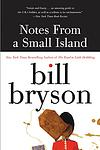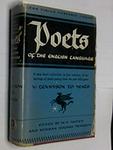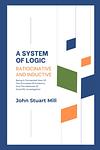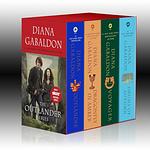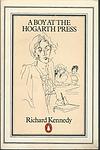The Greatest American "United Kingdom" Books of All Time
Click to learn how this list is calculated.
This list represents a comprehensive and trusted collection of the greatest books. Developed through a specialized algorithm, it brings together 300 'best of' book lists to form a definitive guide to the world's most acclaimed books. For those interested in how these books are chosen, additional details can be found on the rankings page.
Genres
Countries
Date Range
Reading Statistics
Click the button below to see how many of these books you've read!
Download
If you're interested in downloading this list as a CSV file for use in a spreadsheet application, you can easily do so by clicking the button below. Please note that to ensure a manageable file size and faster download, the CSV will include details for only the first 500 books.
Download-
1. Gravity's Rainbow by Thomas Pynchon
Set during the end of World War II, the novel follows Tyrone Slothrop, a lieutenant in the U.S. Army, as he tries to uncover the truth behind a mysterious device, the "Schwarzgerät", that the Germans are using in their V-2 rockets. The narrative is complex and multi-layered, filled with a vast array of characters and subplots, all connected by various themes such as paranoia, technology, and the destructive nature of war. The book is known for its encyclopedic nature and its challenging, postmodernist style.
-
2. The Da Vinci Code by Dan Brown
This thriller novel follows symbologist Robert Langdon and cryptographer Sophie Neveu as they investigate a murder in the Louvre Museum in Paris. The murder leads them to a trail of clues hidden in the works of Leonardo da Vinci, revealing a religious mystery protected by a secret society for two thousand years. The mystery involves a conspiracy within the Catholic Church and threatens to overturn the foundations of Christianity.
-
3. The Guns of August by Barbara Tuchman
"The Guns of August" is a detailed and engaging account of the first month of World War I. The book explores the events leading up to the war, the political and military strategies of the various countries involved, and the critical decisions that shaped the course of the conflict. It presents a vivid picture of the war's early stages, highlighting the miscalculations, miscommunications, and misunderstandings that led to one of the most devastating wars in history.
-
4. The Great Railway Bazaar by Paul Theroux
"The Great Railway Bazaar" is a travelogue in which the author embarks on a four-month journey by train from London through Europe, the Middle East, the Indian subcontinent, Southeast Asia, and Siberia, and then back to Europe. The book is a vivid and insightful account of the people, cultures, landscapes, and experiences encountered during the journey, painting a unique picture of the world as seen from the perspective of a train window. The author's sharp observations and engaging storytelling make this journey as much an inner exploration as a geographical one.
-
5. Cryptonomicon by Neal Stephenson
The book is a sprawling narrative that intertwines two timelines: the first during World War II, focusing on the efforts of cryptographers and mathematicians working to break Axis codes, and the second in the late 20th century, following a group of entrepreneurs and hackers establishing a data haven in Southeast Asia. The novel explores themes of cryptography, mathematics, and the history of computing, weaving together real historical figures with fictional characters. As the plot unfolds across different continents and eras, it delves into the impact of information technology on society and the perpetual conflict between governments and individuals over the control of information and privacy.
-
6. The Last Lion by William Manchester
"The Last Lion" is a comprehensive biography of Winston Churchill, providing an in-depth look at his life, from his birth in 1874 to his death in 1965. The book covers Churchill's early years, his military service, his time as a journalist, and his political career, including his role as British Prime Minister during World War II. It also delves into his personal life, relationships, and struggles with depression. The book presents a nuanced portrayal of Churchill, highlighting his strengths, flaws, victories, and defeats.
-
7. Notes from a Small Island by Bill Bryson
This humorous travel memoir features an American author's journey across the United Kingdom, where he had lived for two decades. Before returning to the United States, he decides to tour the country, using public transportation and staying in small-town accommodations. The book provides an amusing, and at times sarcastic, outsider's perspective on British life, culture, and idiosyncrasies, while also expressing a deep affection for the nation and its people.
-
8. Poets Of The English Language by W. H. Auden, Norman Holmes Pearson
This anthology serves as a comprehensive collection that traces the evolution of English poetry from its earliest incarnations to the mid-20th century. Curated by two eminent literary figures, the volume meticulously compiles the works of poets who have significantly shaped the landscape of English literature. Through their selection, the editors aim to highlight the richness and diversity of poetic expression across different eras, showcasing the enduring power of the written word. The anthology not only celebrates the mastery of language and emotion by these poets but also provides readers with a deep insight into the cultural and historical contexts that influenced their work.
-
9. Say Nothing by Patrick Radden Keefe
This book is a gripping exploration of the Troubles in Northern Ireland, focusing on the disappearance of Jean McConville, a mother of ten who was abducted by the Irish Republican Army (IRA) in 1972. The narrative weaves together the stories of several key figures in the IRA, including Dolours Price, an IRA member who became disillusioned with the organization, and Brendan Hughes, a former IRA commander. The book delves deep into the political and personal complexities of the conflict, revealing the long-lasting trauma and moral ambiguities that continue to haunt those involved.
-
10. World War Z by Max Brooks
The book is an apocalyptic horror novel presented as a collection of individual accounts in the aftermath of a global pandemic that leads to a catastrophic zombie outbreak. Through interviews with survivors from various countries and walks of life, the narrative unfolds the social, political, cultural, and environmental implications of the zombie crisis, known as World War Z. The personal stories explore the widespread panic, the collapse and resurgence of governments, military strategies employed to combat the undead, and the human resilience in the face of a decimated world. The novel serves as a critique of societal responses to disasters and a commentary on the human condition.
-
11. Parallel Lives: Five Victorian Marriages by Phyllis Rose
This book delves into the intimate dynamics of matrimony in the Victorian era through the examination of five distinct marriages among prominent literary and intellectual figures of the time. By exploring the relationships of these influential couples, the work reveals the complexities and challenges of Victorian marriage, including the negotiation of traditional roles, the impact of societal expectations, and the personal struggles and triumphs that defined these partnerships. The text serves as both a historical exploration and a commentary on the evolving nature of love, commitment, and companionship, offering a nuanced perspective on the private lives that influenced public personas and cultural legacies.
-
12. Green City In The Sun by Barbara Wood
Set against the backdrop of colonial Kenya, the novel is a sweeping saga that explores the intertwined lives of two families—one British and one Kikuyu—over several decades. As the British family establishes a vast estate and hospital in the Kenyan highlands, their presence and actions deeply affect the local Kikuyu people. The story delves into themes of colonialism, cultural conflict, love, betrayal, and the struggle for power. As the characters navigate personal and political upheavals, the narrative reveals the complexities of race relations and the impact of colonial rule on both the land and its people, culminating in a dramatic and emotional conclusion that reflects the broader historical changes taking place in the region.
-
13. The Prize: The Epic Quest for Oil, Money, and Power by Daniel Yergin
"The Prize: The Epic Quest for Oil, Money, and Power" is a comprehensive history of the global oil industry, tracing its development from the drilling of the first well in Pennsylvania to the oil crisis of the 1970s and its aftermath. The book examines the key players, political conflicts, and technological advancements that have shaped the industry, and explores the profound impact of oil on the global economy and geopolitics. It also discusses the environmental and social challenges associated with oil production and consumption.
-
14. The Great Divergence by Kenneth Pomeranz
This book challenges traditional views on the rise of the Western world's economic dominance, arguing that until the late 18th century, parts of Europe, China, Japan, and the Islamic world were similarly advanced. The author contends that geographical and ecological factors, rather than inherent cultural or technological superiority, played a crucial role in Europe's industrialization. Specifically, the availability of coal in Britain and the exploitation of the New World's resources are highlighted as pivotal in creating the "Great Divergence" between the West and the rest of the world. Through this lens, the book reevaluates the roots of global inequality and the factors that have shaped the modern economic landscape.
-
15. A Biographical History Of Philosophy by George Henry Lewes
"A Biographical History of Philosophy" is a comprehensive survey of philosophical thought from ancient times through the 19th century, examining the lives and contributions of key philosophers throughout history. The book delves into the evolution of philosophical ideas and how they reflect the intellectual climates of their respective eras. It provides detailed biographical sketches of philosophers, contextualizing their theories within their personal experiences and broader historical moments. The work is notable for its accessible prose and its effort to make complex ideas understandable to a general audience, offering insights into how philosophical thought has shaped, and been shaped by, the trajectory of human history.
-
16. A System Of Logic by John Stuart Mill
"A System of Logic" is a comprehensive treatise on the principles and methods of scientific reasoning. The book elaborates on the nature of logic and its relation to truth, knowledge, and human understanding. It systematically explores the process of human thought and the structure of logical argumentation, distinguishing between deductive and inductive reasoning. The work also discusses the application of logic to the natural and social sciences, emphasizing the importance of empirical evidence and the scientific method in establishing valid conclusions. Through its rigorous analysis, the book aims to lay the foundations for sound reasoning and empirical inquiry, influencing the development of modern logic and philosophy.
-
17. The Royal Family by William T. Vollmann
"The Royal Family" is a complex and sprawling novel that delves into the seedy underbelly of San Francisco's Tenderloin district, exploring themes of obsession, redemption, and the nature of love. The narrative follows a private investigator who becomes fixated on the search for the Queen of the Prostitutes after the death of his brother. His quest leads him into a dark world filled with destitute characters, from drug addicts to sex workers, each struggling with their own demons. The book is a gritty, often harrowing examination of the fringes of society and the human connections that can be found within its depths.
-
18. Macmillan by Alistair Horne
This biography provides a comprehensive look at the life and political career of Harold Macmillan, a prominent British politician who served as the Prime Minister of the United Kingdom from 1957 to 1963. The book delves into Macmillan's role in key historical events, his efforts to rebuild Britain after World War II, and his significant contributions to the decolonization of Africa and the development of the welfare state. It also explores his personal life, his complex character, and the political challenges he faced, offering a detailed portrait of a pivotal figure in 20th-century British politics.
-
19. The Art Of Shakespeare’s Sonnets by Helen Vendler
This book provides an in-depth analysis of William Shakespeare's sonnets, offering a detailed commentary on each of the 154 poems. The author, a renowned literary critic, breaks down the complex structure, themes, and linguistic nuances of the sonnets, enhancing the reader's understanding and appreciation of Shakespeare's work. Through a close examination of the poet's techniques, wordplay, and thematic intricacies, the book reveals the artistic mastery and emotional depth of the sonnets, making it an essential guide for both scholars and enthusiasts of Shakespeare's poetry.
-
20. A Man For All Seasons by Robert Bolt
"A Man For All Seasons" is a compelling play that dramatizes the conflict between King Henry VIII and Sir Thomas More. It portrays More's moral and legal struggle against the King's desire to divorce his wife and marry another in order to produce a male heir. As the story unfolds, More's steadfast ethical integrity leads to his downfall, as he chooses to remain true to his principles despite the personal risks. His refusal to endorse the King's wish ultimately costs him his position, his freedom, and even his life. The play explores themes of morality, power, and the consequences of standing by one's beliefs in the face of governmental pressure.
-
21. Dragonfly In Amber by Diana Gabaldon
The book is the second installment in a historical fiction series that weaves together romance, science fiction, and adventure. It continues the story of a 20th-century Englishwoman who has time-traveled to 18th-century Scotland and fallen in love with a dashing Highland warrior. As the Jacobite rebellion leads to the fateful Battle of Culloden, the couple faces the threat of being torn apart by the tumultuous events of history. Interwoven with their past is the present-day narrative of their daughter, who discovers her parents' remarkable story and the truth of her own origins. The novel explores themes of love, loyalty, and the impact of the past on the present.
-
22. A Way In The World by V. S. Naipaul
"A Way in the World" is a narrative that blends fiction with historical analysis, presenting a series of interconnected stories that explore the themes of identity, colonialism, and the complex interplay between personal history and larger historical forces. Set primarily in the Caribbean, the book weaves together the lives of a diverse cast of characters, from ambitious politicians and struggling writers to colonial administrators and ordinary citizens, each navigating the turbulent waters of cultural and political change. Through these stories, the narrative delves into the legacies of empire and the enduring impact of colonialism on individual lives and national identities.
-
23. A Fortunate Man by John Berger
"A Fortunate Man" is a profound exploration of the life and work of a country doctor, delving into his daily interactions with patients in a rural English community. The book combines narrative, philosophy, and photography to reflect on broader human conditions through the lens of medical practice. It examines the doctor's deep empathy and commitment to his patients, his philosophical reflections on life, death, and suffering, and the impact of his work on his own well-being. Through this intimate portrayal, the book raises essential questions about the nature of care and the role of a healer in society.
-
24. A Boy At The Hogarth Press by Richard Kennedy
"A Boy at the Hogarth Press" is a memoir that offers a unique glimpse into the world of publishing through the eyes of a young assistant. The narrative captures the author's experiences working at the Hogarth Press, a prominent publishing house founded by a famous literary couple. Through a blend of personal anecdotes and vivid illustrations, the memoir provides an insider’s view of the day-to-day operations and the eccentric personalities that populated the literary scene during that era. The author's youthful perspective adds a touch of humor and naivety, making it a charming and insightful read about the complexities and quirks of the literary world.
-
25. Old House Of Fear by Russell Kirk
In "Old House of Fear," the protagonist, an American envoy, travels to a remote Scottish island to negotiate the purchase of an old mansion. Upon arrival, he encounters an atmosphere of mystery and terror, fueled by local superstitions and the eerie presence of the mansion itself. As he delves deeper, he faces a series of supernatural occurrences and a sinister conspiracy, challenging his skepticism and forcing him to confront his deepest fears. The novel blends elements of Gothic horror with a modern psychological thriller, creating a gripping and suspenseful narrative.
Reading Statistics
Click the button below to see how many of these books you've read!
Download
If you're interested in downloading this list as a CSV file for use in a spreadsheet application, you can easily do so by clicking the button below. Please note that to ensure a manageable file size and faster download, the CSV will include details for only the first 500 books.
Download





